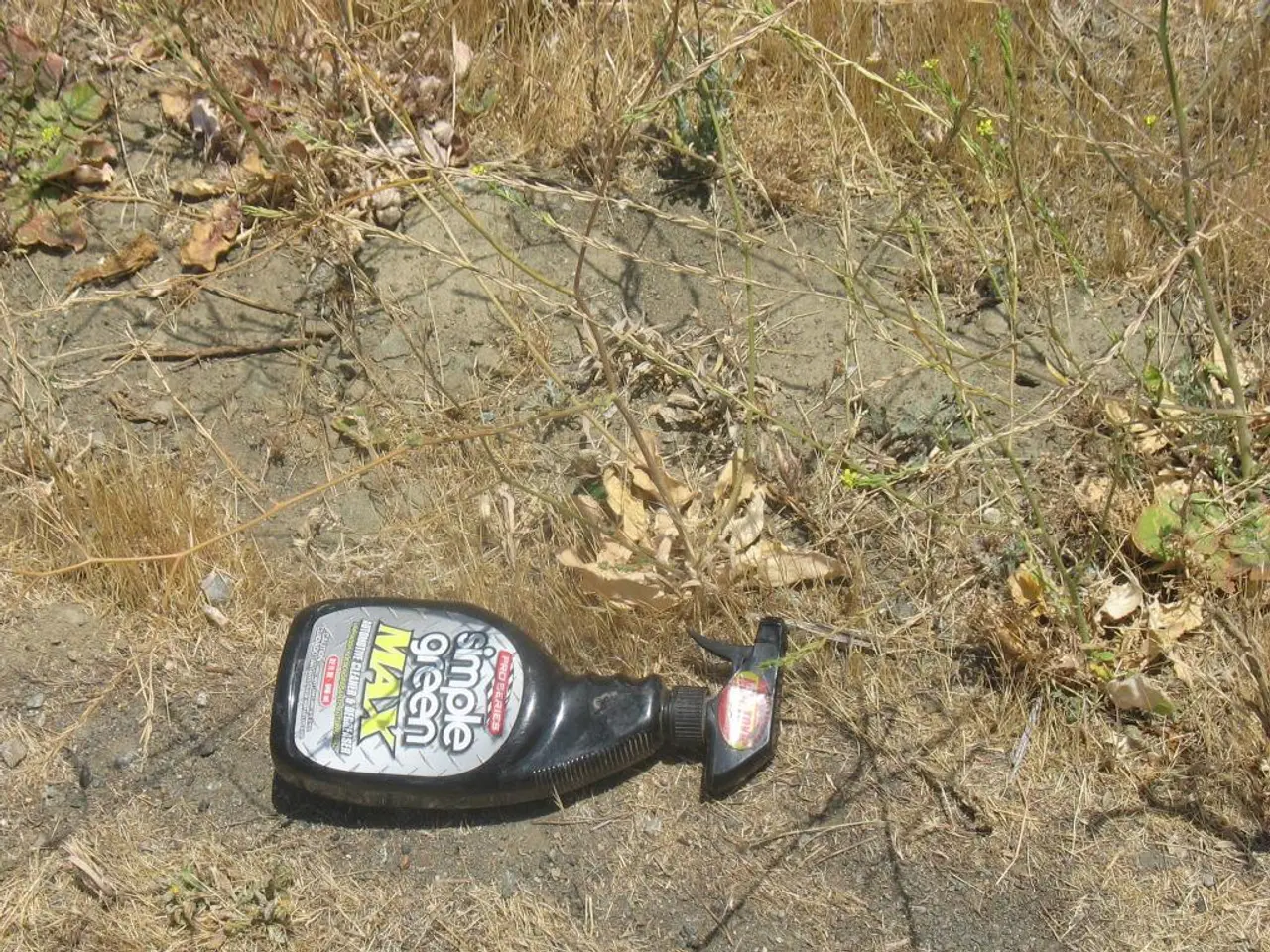Essential Information on Employing Vermicompost for Your Garden Plants
Vermicompost, a living organism with a perfect natural balance of nutrients, is revolutionizing the gardening world. This nutrient-rich substance is the end result of composting organic material with worms, such as red wigglers or earthworms.
Vermicompost is more than just a fertilizer; it's a veritable treasure trove of beneficial microorganisms that improve soil fertility and stimulate plant growth. Rich in available nitrogen, phosphorus, calcium, and magnesium, it's 5 to 11 times more nutrient-dense than the organic matter it consumes.
So, how can you make the most of this gardening gold? Here are some effective methods for using vermicompost in your garden:
- Soil Amendment: Mixing vermicompost directly into garden soil before planting enriches the nutrient content and improves soil texture. For garden beds, blend about 10–20% vermicompost into the top 4–6 inches of soil (roughly 2–4 cups per square foot).
- Potting Mix: Combine vermicompost with potting soil or coco peat for container plants or seedlings. A common ratio is about 1 part vermicompost to 4–5 parts potting soil (approx. 15–20% by volume).
- Top Dressing (or Side Dressing): Sprinkle a thin layer (about ¼ to ½ inch) of vermicompost around the base of established plants every 1–2 months. Water it in so nutrients can seep into the root zone.
- Lawn Application: Spread a thin layer (¼ inch) of vermicompost evenly over lawns during spring and fall to promote greener, healthier grass and reduce thatch buildup.
- Compost Tea: Brew vermicompost in water (usually 1–2 cups in 5 gallons of dechlorinated water with molasses) for 24–36 hours to make a nutrient-rich liquid. This can be sprayed on leaves or poured at the root zone to stimulate microbial activity and improve nutrient uptake.
Remember, excessive use of vermicompost can reduce soil aeration or cause sogginess, so follow recommended proportions based on plant type and soil. Vermicompost is suitable for all soil types and plants, including garden beds, potted plants, lawns, and landscaping applications.
By using vermicompost in these ways, you're supporting sustainable gardening by naturally enhancing soil health and plant vitality without synthetic chemicals. Vermicompost can improve germination and seedling growth, aid in disease prevention, and help tired plants and creepers regain their vigour.
So, whether you're a seasoned gardener or a novice just starting out, consider incorporating vermicompost into your gardening routine. The rule is simple: If you feed the soil, the soil will feed you. And with vermicompost, you're feeding your soil a nutrient-rich feast that will, in turn, nourish your plants and your garden.
- Nursery Applications: Incorporate vermicompost into the mix for seedling trays or cell packs to promote quicker root growth and healthy seedlings. The organic matter helps retain moisture and provides essential nutrients for early development.
- Fruit Trees and Vines: Surrounding the base of fruit trees and vines with a layer of vermicompost helps improve fruit production and overall plant health. This is especially beneficial in organic gardening, as it replenishes the soil with nutrients lost during harvest.
- Indoor Plants: Vermicompost isn't just for outdoor gardens – it can also be used for indoor plants. Mixing it into the potting soil can help enrich the soil and promote healthier indoor plant growth. Be cautious not to overdo it, as excessive moisture can lead to root rot in some plants.
- Vegetable Patch: Vermicompost is an excellent addition to vegetable gardens, improving soil quality, increasing crop yields, and reducing the need for synthetic fertilizers. It's particularly beneficial for root crops and leafy greens that require a rich nutrient base for optimal growth.
- Organic Workplace Wellness: Promote a health-and-wellness culture at your workplace by incorporating vermicompost into indoor plantscaping. The presence of living plants increases air quality and can reduce stress levels among employees. By using vermicompost in your indoor plants, you're taking it a step further to support eco-friendly practices in the office environment.
- Home Cooking and Food Preparation: Vermicompost isn't only useful for plants – it can also improve the quality of your food in the kitchen. Used in skin-care recipes, cooking, and even in DIY cleaning products, vermicompost offers a natural, organic alternative to chemical ingredients. Plus, when you cook with nutrient-rich vegetables and participate in the gardening process, you're also engaging in a healthier lifestyle that emphasizes fresh produce and a connection to nature. Furthermore, composting kitchen scraps can contribute to your home-and-garden waste management system, reducing food waste and supporting a more sustainable fashion-and-beauty, food-and-drink lifestyle.






